Disaster Planning and Important Supplies to Consider
Disaster Planning and Important Supplies to Consider
With the recent earthquakes in California and Florida being right in the heat of hurricane season, I thought it would be a useful idea to share some of my suggestions and methods for keeping you and your family safe during a disaster.
I’ve personally experienced wildfires, earthquakes, blizzards, hurricanes, floods and a considerable number of tornadoes. Given our present location (near the Florida Space Coast), we’re geared more for a variety of wet and wild adventures than for something like an earthquake. However, don’t let that turn you away from this piece simply because you’re more concerned about a particular threat. This article is more-or-less universal with regard to safety and disaster preparedness.
Whether you intend to evacuate en masse with the rest of your state or shelter in place for your disaster, you’re going to want to come up with a solid plan and a good number or resources. Take the time to carefully consider your personal needs and options. I’d also like to give an honorable mention to the U.S. Government for their role in educating the public at large.
There’s some great resources available at Ready.gov and I’d urge you to take a peek at them. My only complaint would be their 36-hour recommendations, as the time to prepare for a hurricane is now and not 36 hours before all hell breaks loose. The same goes for any other major disaster; if you’re prepared and nothing happens, then you’ve lost nothing. If you’re unprepared and something happens, the consequences could be the loss of everything.
Basic Disaster Planning and Supplies
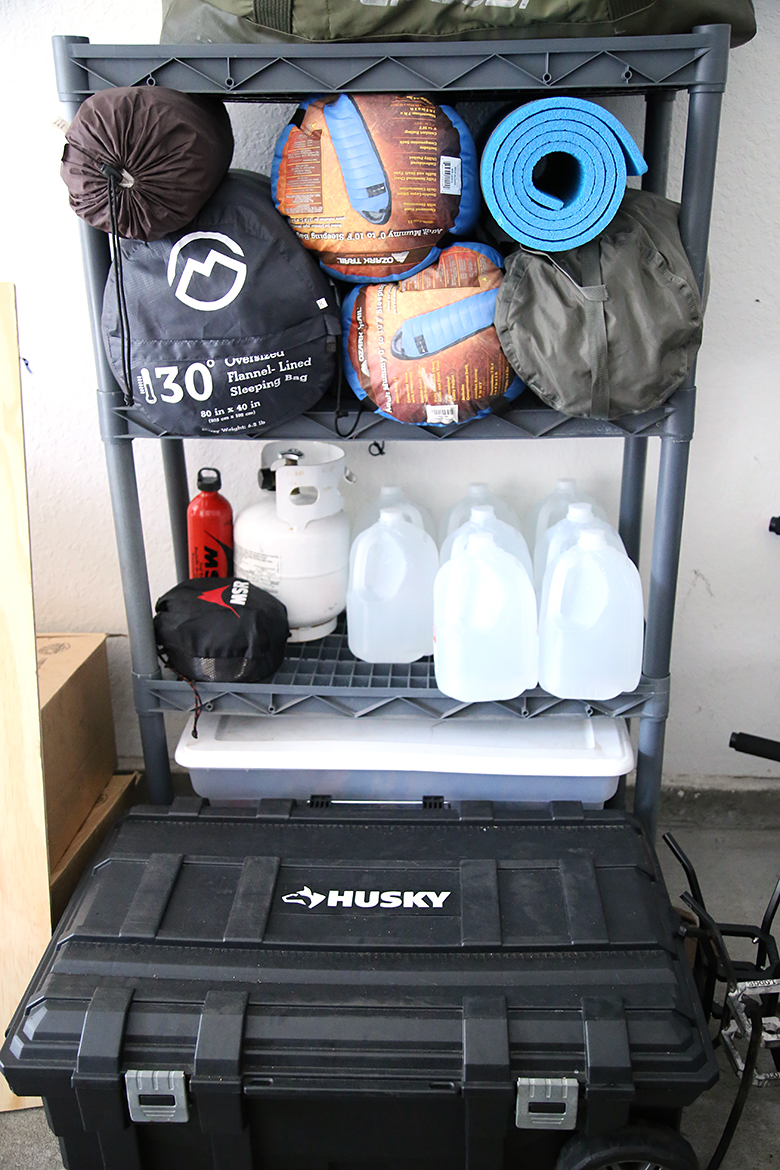
Because of our location, most of our preparedness kit revolves around coastal weather phenomena, however the basics remain the same. I’m going to share a few of the lessons learned from previous experiences and hopefully they can help you reevaluate your emergency plan. Your kit should include some obvious things like a first aid kit, fresh water, non-perishable food items and a flashlight. However, there are some other items that often go overlooked in situations like this.
My rule for water is one gallon per person per day, for seven days. So my wife and I naturally keep 14 gallons of clean water safely stored in our garage. Luckily, our garage doesn’t reach extreme temperatures because of its position relative to the traveling sun. Another important point to remember is that you should never store food and water directly on concrete. This is because plastic containers can absorb contaminants and even chemicals used to make concrete, thus rendering your water unsafe for consumption.
I also recommend grabbing a jerry can or two and filling them with tap water. The stories we heard about the week-long power outage during Hurricane Irma were things nightmares are made of! Food is pretty simple to address. We have packaged tortillas, tuna packets, beef stew, chili and baked beans. We spend a lot of time intermittent fasting, so food isn’t a major concern for us during a power outage.
Most water treatment facilities have backup generators and may still be able to maintain power for some time after a disaster, but not for long periods. If you’re on a well system, I suggest keeping extra water available to flush the toilet with and to take towel baths in the sink.
It never hurts to ask your doctor for an extra month of medication for your emergency kit. Typically when medications aren’t strictly monitored or limited by regulatory agencies, doctors aren’t usually put off by asking for an additional 7-14 days of a particular medication. Don’t be afraid to ask.
Along this line comes my recommendation for keeping a trauma kit and tourniquet close at hand. Bumps and bruises are quite common, but you never know when a severe injury may need to be treated during a storm. Emergency personnel will often make the statement to anyone planning on sheltering in place that they’ll be unable to reach you until after the storm passes. Remember that they have urged you to leave your home, so if you aren’t going to take their advice, don’t expect them to put themselves in unnecessary danger to save you.
Secondary Considerations for Safety and Self-Defense

I’m constantly surrounded by student pilots from all around the world and most of them have no understanding of the shear ferocity and hate that a hurricane can bring to the table. As a result, we’ve been having frequent discussions about how to best prepare for the imminent threat of a tropical weather incident. The immediate area we live in is relatively benign, but only a few blocks down the road is a pretty rough part of the county. For this reason, I stress to those making preparations to keep their supplies well out of the public eye and to refrain from speaking about the resources they have available. While these weather events are typically well-organized and people don’t always run around looting and fighting, you can’t rule out the threat of violence.
During Hurricane Katrina, we saw some of the best and the worst in humanity. People came from hundreds of miles to help those in need, but the police were overwhelmed dealing with looters and burglars. During most major storms, we see the same patterns of looting and violence. The unprepared can and will do anything necessary to sustain their lives, even if it means taking from others. I don’t say this as if you should expect to have someone kicking your door in to steal your hurricane snacks. (Seriously do an image search on “hurricane snacks meme”.) I say this because it does happen and we aren’t the audience that gets excited about being a victim.
If you can carry a firearm, carry it. The idea of having to confront another human-being with deadly force isn’t pleasant, but there’s also nothing wrong with protecting your family. Keeping your supply stock low key and communicating only with essential personnel like neighbors and family will help keep you out of the spotlight if things get really nasty. For this reason, we try not to run the generator unless we absolutely need to. There’s no cable TV or Internet in a lot of these scenarios, so it makes sense that you have something worth preserving. I know this sounds gloom and doom, but I’ve seen it first-hand in nearly every major storm I’ve been affected by.
The idea of having to defend yourself after a disaster is crazy to think about, but it’s a reality that must be considered. We keep at least one trauma kit available, but I also have quite a bit of gear accumulated from the years of being in the healthcare industry. While you may not have access to certain specialized items, you can definitely buy a simple trauma kit right off the shelf. You never know what kind of situation you’ll find yourself in.
Evacuation Strategies
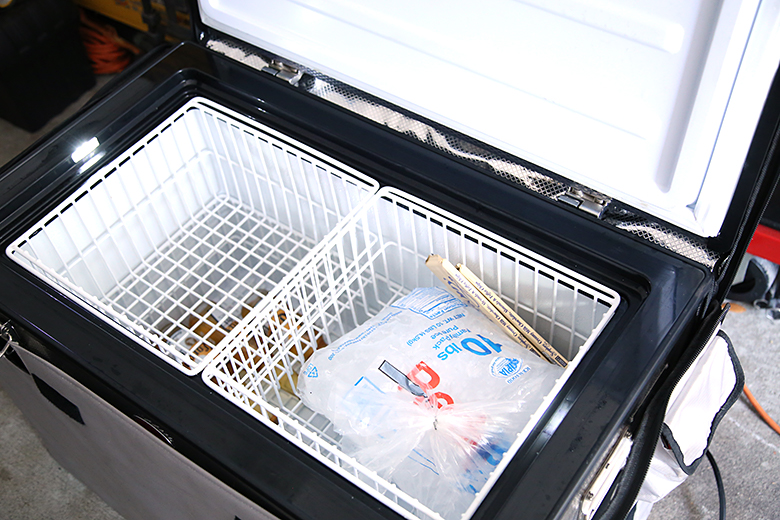
My last major weather event was Hurricane Irma and during this time, my family pooled our resources and decided to shelter-in-place at my Uncle’s house. It was above the flood plain and the structure was reinforced to withstand most things mother nature can throw at it. Shortly after 7 a.m. on the day of landfall, we discovered the projected path had shifted into what was ideally the worst-case scenario. Several of my family members made the knee-jerk reaction to evacuate with only hours remaining. I was really looking forward to the storm, but ultimately decided to load my truck and accompany my mother out of the state. (So sweet, I know.) Mom had knee surgery about a day before we discovered a nasty weather event knocking on our door and that left us in a pretty bad situation.
I’ve been into expeditionary-style travel since before it was trendy and as a result, I’ve pretty much always been prepared for an extended stay with my truck. This situation was no different, but it helped me understand my needs a little better. Our shelter-in-place plan of action had descended into chaos as we began arguing over which supplies would stay at the house vs. which would accompany us on the journey. The Gulf Coast Amateur Radio Club (GCARC) had been keeping a handle on the situation as it developed and we were able to reach out to their radio network for information on resources. Fuel was a major problem and was becoming more difficult to find by the minute. Moreover, we were running out of ice at an alarming rate.
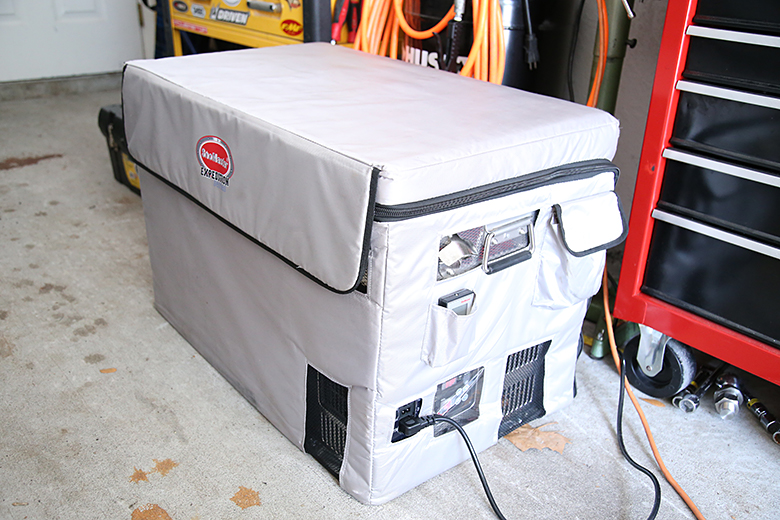
I mentioned that my mother had just begun her recovery process and was using an ice machine for her recovery. In a dire situation she probably could have gone without it, but I know it immensely helps recovery. As result, my wife and I ended up springing for a refrigerator for our truck, you know, just in case. We have since upgraded to a huge unit that can maintain more ice and food for a longer period of time, but that’s for another discussion. As a side note, having a portable expedition-style fridge has become part of our preparedness strategy, as we can run it for several days on the second truck battery without the risk of losing the starter. Now your needs may vary greatly, but I can say truthfully that this is a much better solution than fighting for ice and for being self-sufficient.
Having handheld and mobile HAM radios proved to be worth their weight in gold as the GCARC weather net was activated, but it still didn’t solve the problems of fuel availability. We could hear preliminary reports of the storm making landfall south of our location and were still waiting in the parking lot they called Interstate 75. Everything was all-around terrible. We made it into Tennessee as the storm caught up to us, but had safely tucked in behind Lookout Mountain for the next couple of days. The hunt for jerry cans and fuel that followed was something I hope to never experience again.
I share this brief story as a reminder that even the most prepared individuals can get caught up in the stress of the situation. Weather events can be extremely dynamic and require a level head and a solid plan to ensure the safety of everyone involved. If you’re going to shelter in place, have a backup plan and discuss it very clearly with everyone involved. Know where the emergency shelters are and know where your home lays in reference to evacuation zones for your county. If you plan to evacuate, do it early and don’t second-guess yourself; just go. Remember that you can also be caught in the middle of a bad situation, so make sure to plan on additional fuel, food, water and shelter. Definitely load up on baby wipes and take care of hygiene.
Subjective Content Warning: Instead of making this an entire section, I want to touch briefly on pets. If you’re in an area that is prone to any type of disaster requiring evacuation, I urge you to reconsider your plan to involve family pets. Take the same considerations for the animals as you do for the rest of the family with regards to food, water, medication, etc. There is never a good excuse to leave an animal behind during an evacuation. I understand that things can turn bad very quickly, but the only excuse that holds up is bad planning. Consider it now and if you determine that your disaster evacuation strategy involves leaving your animal behind, please be a good human and re-home them before that time comes. I don’t aim to turn this into a political debate, but those animals can’t speak for themselves while they’re part of your world. Don’t drop them off at the gates of hell and wish them luck.
Conclusion
Evacuation or sheltering-in-place can both be equally traumatic during a disaster. Whichever path you choose and whatever your expectations are, try to think of every possible scenario before you make the decision. Plan to be caught off guard more than once, but keep a cool head so you can respond to changing environments. Break your resources down into categories just like you would for a camping trip or a long vacation.
If you’re going to be stuck, make sure you’ve got a way to cook food and clean your body. Defend yourself, your property and your family to the best of your abilities, but don’t be stupid about it. I didn’t mention many items that will be on the Ready.gov or other agency lists because you don’t need me to highlight everything for you. Check out your local websites and determine what the plans are for any particular disaster. Be ready now so that you don’t have to be in a bad situation when everything falls apart.
Editor-in-Chief’s Note: Derek Gill has been a Plank Owner here at ITS from the beginning and has an extensive background in healthcare, pharmaceutical research and technical diving. He’s been certified in SCUBA since 2000 and diving technical/CCR since 2010. He speaks several languages including Russian and Spanish as well as several computer languages. These combined skills have opened the door to more creative ventures in Network Security and Physical Security consulting. Derek is a veteran of the US Navy and a former Navy Corpsman who worked alongside the US Marine Corps. His military nickname, “Witch Doctor,” has stuck with him ever since and it can now be found across many internet forums where he takes pride in trolling sensational zealots from multiple industries.






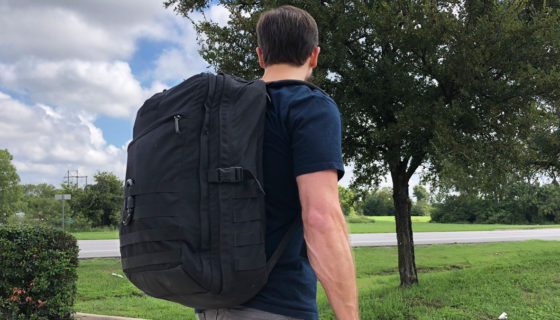
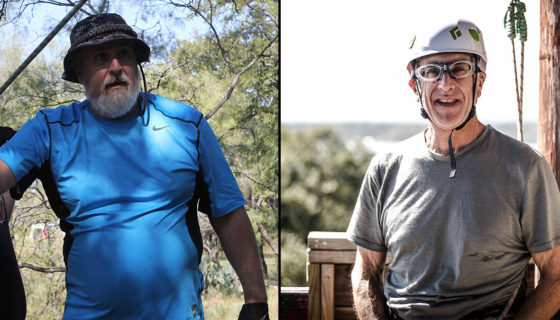
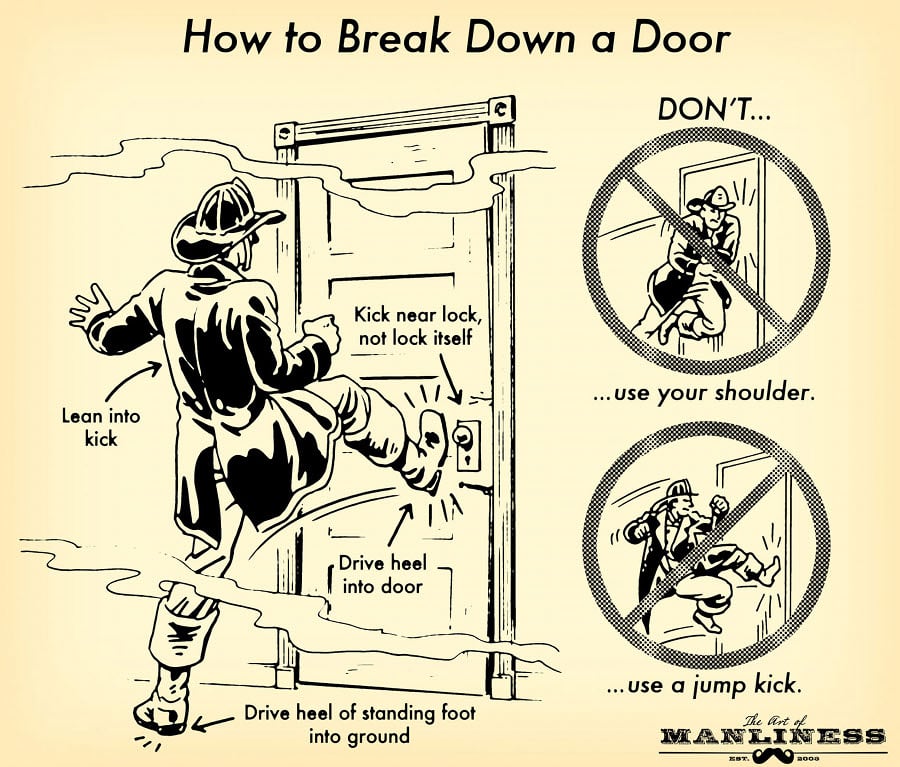
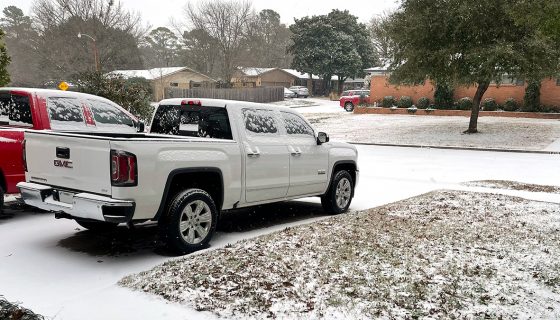

Discussion